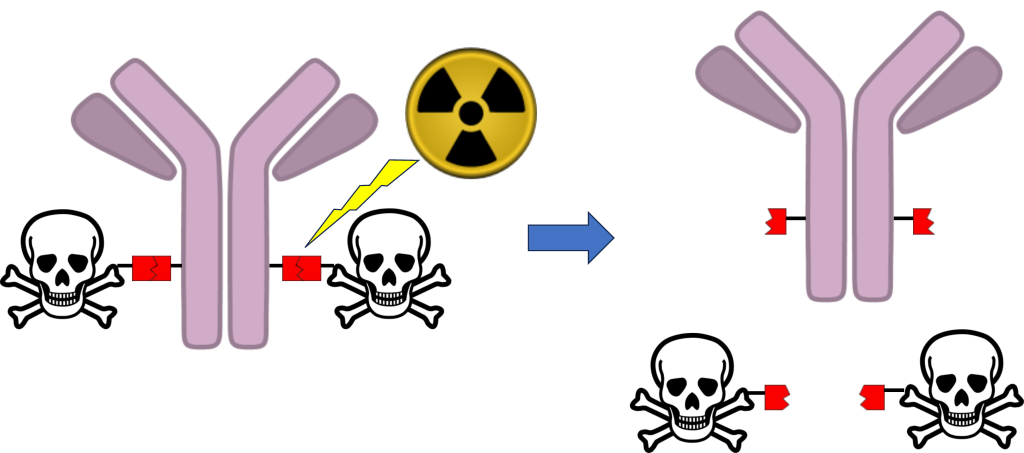Project No. 2406
STANDARD PROJECT
Primary Supervisor
Dr David Beal – University of Kent
Co-Supervisor(s)
Dr Andrew Lawrence – University of Southampton
Prof Mark Smales – University of Kent
Summary
Antibody drug conjugates (ADC) are targeted cancer treatments offering solutions to the side-effects of traditional chemotherapy.
Despite their promise ADCs have still suffered from side-effects and toxicity, some of which has been associated to heterogeneous conjugation strategies and poor pharmacokinetics. Early ADCs have targeted receptors which internalise on binding, transferring the ADC into the cell and onto the lysosome where degradation of the ADC releases the cytotoxic payload. This strategy has two main limitations, the first that the target must be internalised and the second that tumour receptor levels are heterogeneous meaning that not all cancer cells will be affected to the same degree, leading to an important resistance mechanism. In addition, complications also occur due to the linker structures and the is the trigger for drug release – protease or reduction. Recent bioorthogonal chemistry innovations have highlighted the potential of drug release on the outside of the target cell by chemical reaction, thus giving a burst of drug release in tumour locality and relying on traditional small molecule uptake into the cell.
The observation that B12 analogues modified through the cobalt are susceptible to cleavage by radiation leads to the exciting idea of radiation cleavable ADC. In this project we will build upon research on recombinant protein production and chemical modification in the Beal (Kent)/Smales (Kent) labs and methodologies developed for the modification of vitamin B12 developed by the Beal/Lawrence (Southampton) labs to produce Antibody B12 drug conjugates. These novel molecules will enable tumours to be influenced not just by radiation but a concomitant localised release of drug using pretargeted conjugates.
A suitable candidate for this project will have an interest in both chemistry and biology. They will ideally have a knowledge of chemistry or molecular biology/mammalian cell culture and a willingness to learn the other aspects of the project.

